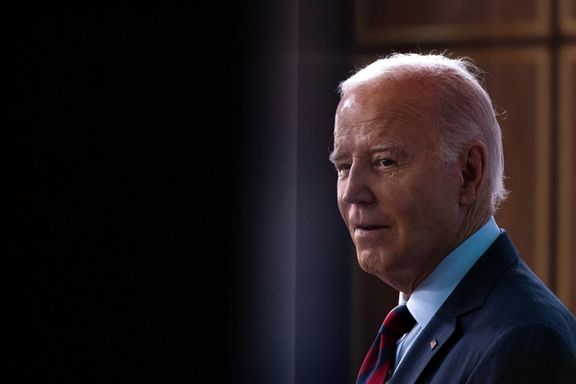Biden Allows Iran to Access Another $10 Billion Amid Gaza War

In a controversial move, the Biden administration has granted Iraq a new 4-month waiver, enabling the release of billions of dollars to Iran, blocked by US sanctions.

In a controversial move, the Biden administration has granted Iraq a new 4-month waiver, enabling the release of billions of dollars to Iran, blocked by US sanctions.
The decision, coming amid the Gaza war and Iran's backing for Hamas, would effectively unfreeze an estimated $10 billion that Iraq owes Iran but cannot pay due to US sanctions.
The Biden administration says a thorough vetting process is in place to ensure that any money released is used exclusively for Iran’s humanitarian and "non-sanctionable" needs such as food and medicine.
But the critics say money is fungible and this fund, however thoroughly vetted, would free up other funds that can be used for malign activities.
The move is all but certain to enrage many in Washington, especially at a time when American troops in Iraq and Syria are attacked by Iran-backed groups almost daily.
In fact, first signs of a backlash on Capitol Hill came within hours of the announcement.
“We must deny these terror groups Iran's resources by permanently freezing the $6B in Qatar, $10B in Iraq, and enforcing sanctions for China's purchases of Iranian oil,” said Senator Jim Risch, Ranking Member of the Senate Foreign Relations Committee.
Senator Marsha Blackburn also questioned the administration’s decision to release the Iranian funds Tuesday evening. “Iran financially supports Hamas’ terrorism,” she posted on X, “why would Biden want to send another $10 Billion to Tehran?”
Congressional Republicans pillory Biden’s Iran policy as “appeasement”. Many say his approach has emboldened the regime, not just in its nuclear program, but also its attack –direct or indirect– on US interests in the region. They have been trying for weeks to force the administration to change direction by legislative means. So far to no avail.
“We're bringing a bill to the Floor this Thursday that will freeze the $6 billion that Joe Biden wants to give to Iran," the House Majority Leader Steve Scalise said Tuesday.
The now infamous $6 billion was Iran’s oil revenue blocked in South Korea. The US government allowed it to be released as part of a deal in September that brought back five Iranian-Americans who were held hostage in Iran.
That deal raised many questions from the onset. Some Republicans in the Congress called it ‘ransom’ and warned that the regime in Iran could spend it on militias targeting US forces or advancing its nuclear program.
The October 7 terror attack on Israel made such voices stronger and louder, since Hamas is a big beneficiary of the Islamic Republic’s largesse to maintain or enhance its influence in the region.
Despite these concerns, the US Secretary of State signed the Iraq waiver Tuesday, saying that the administration considers it imperative to maintain Iraq's crucial energy source. It seems the decision was made after Secretary of State Blinken traveled to Iraq and Qatar recently as part of his Middle East tour to address the Israel-Hamas conflict.
Some have suggested that the Biden administration “may be attempting to classify the waiver” to avoid scrutiny.
Richard Goldberg, a senior adviser at the Foundation for Defense of Democracies posted on X: “Sent to House and Senate Security Offices to prevent public oversight tonight. The law requires an unclassified waiver but permits a classified annex. White House [is] trying to hide this $10 billion [going] to Iran.”
According to AP, officials have said (on condition of anonymity) that in the previous 120-day window, only a small portion of Iran's money had been transferred from Iraq to Oman –and of that small portion now held in Omani banks, nothing has been spent.